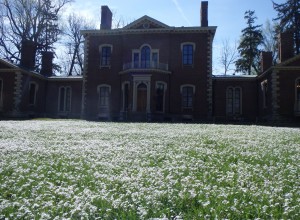how to buy prednisone from canada  The next dawn came and I was still stuck in Lexington. I had arrived on Monday, and now it was Thursday. I asked if there was a problem.
The next dawn came and I was still stuck in Lexington. I had arrived on Monday, and now it was Thursday. I asked if there was a problem.
Bāruipur “Salways trouble with these Foward Rangers. It takes forayver to blade ‘em out. Say, whayn you chenge a clutch you gotta blade ‘em, to get the bubbles out, and it’s just takin’ forever to blade.”
Now I had no idea what he was talking about, but he had mentioned this “bleeding,” before, and I wasn’t going to ask about it now. I just wanted it done. He said lunchtime.
So we had another morning in Lexington. I knew that Catherine had passed by, but never visited, the Henry Clay estate, known as Ashland. Visits from friends are the time when we get things like this done. So we headed over to Ashland and made it for the ten o’clock tour.
Henry Clay was introduced by the guide as “the greatest president America never had.” He had run for president five times, twice receiving his party’s nomination, and never been elected. Lincoln apparently admired him, and called him his “beau ideal of a statesman.” It was a pattern: apparently most of his fellow-politicians thought highly of him. He was elected Speaker of the House on the first day of his first term in the House, which has not happened since.
He was probably unusually well placed for a politician: in the midst of westward expansion, Kentucky was neither settled tidewater nor pioneer territory: it was in the middle. It was the northernmost of the Southern states, but also the southernmost of the states which did not secede. It had steam traffic and commerce along the Ohio river, but also much inland countryside.
Clay seems to have had this middling quality in himself – had so much of it that he was extraordinary, in fact, and that was the general impression I got. He opposed slavery, but did hold title to sixty or so human beings himself (like Washington he freed them in his will). He opposed a national bank, but after having paid an electoral price for this position, he then supported one. He supported tariffs, but was involved in important legislation to gradually reduce them to placate the South Carolinians. He was a major – one might say primary – figure in the compromises of 1820 and 1850, which helped prevent a civil war between the states. It came anyway, of course: it just came later.
I don’t particularly think “he delayed the Civil War” is any greater an accomplishment than “he delayed the Revolutionary War” would be. But it is always possible that Clay’s delay is what allowed the North to win: with each year military technology at that time grew (in the North) more and more powerful. This technology – artillery, machine guns, superior ships, railroads – may have been necessary for the North to actually subjugate the South, which I believe was a desirable outcome.
It is hard to read more than a few paragraphs of Lincoln’s eulogy on Clay: it feels very distinctly like hot air. There are expostulations and grandiose statements, and not too many simple facts. In the end, whatever impression the person of Clay made on Lincoln, his legacy does not make much of an impression today. Stories I heard on the tour made him sound frivolous: gambling tens of thousands of dollars over cards, paying vast sums of money for fine racehorses, being a known womanizer. But such qualities might have made him dashing as opposed to frivolous, I suppose; at the very least they could have made him more vital. I do not deny that the prevention of war is a great virtue – and it has been claimed that Clay’s peacemaking virtue was so great, no civil war could occur while he lived. And his gambling and drinking and womanizing probably indicate a sociable and pleasant nature – and the ability to enjoy life is a virtue too. He built a fine house, and was a fine farmer: he was an expert on the production of hemp, his main cash crop. He commanded the respect and friendship of his peers.
But when compared with the political thought of his contemporaries the Abolitionists, Clay seems pallid and merely social. The vast majority of men are thralls of fashion, and lumps of clay in the mold of conformity: after decades, when the mold is removed and the clay stands on its own, the ridiculousness of the shape stands out. Clay was political and social; those were his horizons. In this respect, he stands against the best part of the American tradition. The ultimate teaching of the idea of limited government is that there are many questions – the greatest, in fact – which are outside the adjudication of any body of men. Such cases may appear before the courts, but they judge the courts in the end, the courts do not judge them. The South has since claimed that it was fighting for “States’ Rights,” and to some extent this is true: they fought for the State’s right, with a few speeches and a vote by parliamentary procedure, to strip any man they wished of his humanity. And the North fought for the principle of limited government: that in the end, no government had any right even to bring such a question before it; that governments were good sometimes for the questions they did not allow to be raised. I let Thoreau speak:
Again it happens that the Boston Court-House is full of armed men, holding prisoner and trying a MAN, to find out if he is not really a SLAVE. Does any one think that justice or God awaits Mr. Loring’s decision? For him to sit there deciding still, when this question is already decided from eternity to eternity, and the unlettered slave himself and the multitude around have long since heard and assented to the decision, is simply to make himself ridiculous. We may be tempted to ask from whom he received his commission, and who he is that received it; what novel statutes he obeys, and what precedents are to him of authority. Such an arbiter’s very existence is an impertinence. We do not ask him to make up his mind, but to make up his pack….
Massachusetts’ crime, the most conspicuous and fatal crime of all, was permitting him to be the umpire in such a case. It was really the trial of Massachusetts. Every moment that she hesitated to set this man free — every moment that she now hesitates to atone for her crime, she is convicted. The Commissioner on her case is God; not Edward G. God, but simply God….
The judge may decide this way or that; it is a kind of accident, at best. It is evident that he is not a competent authority in so important a case. It is no time, then, to be judging according to his precedents, but to establish a precedent for the future….
Only they are guiltless who commit the crime of contempt of such a court.
When Thoreau swings, it is hard not to feel that he lands his punches on the body of Clay:
They who have been bred in the school of politics fail now and always to face the facts. Their measures are half measures and makeshifts merely. They put off the day of settlement indefinitely, and meanwhile the debt accumulates….
These men act as if they believed that they could safely slide down a hill a little way — or a good way — and would surely come to a place, by and by, where they could begin to slide up again. This is expediency, or choosing that course which offers the slightest obstacles to the feet, that is, a downhill one. But there is no such thing as accomplishing a righteous reform by the use of “expediency.” There is no such thing as sliding up hill. In morals the only sliders are backsliders.
Clay’s house was nice, though it was completely rebuilt after his death. The rebuilding effort, finished in 1857, was superb. Beams were large, furniture large, and everything looking to solidity and endurance, rather than cheapness and style. It also felt, as the entire latter half of the nineteenth century does in its architecture, rather masculine: there was a billiards room, and a study, and a library, and all of them looked like places where men drank whiskey and smoked cigars among dark panels and gothic detailing. But Thoreau’s words also can be applied to the house:
I dwelt before, perhaps, in the illusion that my life passed somewhere only between heaven and hell, but now I cannot persuade myself that I do not dwell wholly within hell. The site of that political organization called Massachusetts is to me morally covered with volcanic scoriae and cinders, such as Milton describes in the infernal regions. If there is any hell more unprincipled than our rulers, and we, the ruled, I feel curious to see it. Life itself being worth less, all things with it, which minister to it, are worth less. Suppose you have a small library, with pictures to adorn the walls — a garden laid out around — and contemplate scientific and literary pursuits.&c., and discover all at once that your villa, with all its contents is located in hell, and that the justice of the peace has a cloven foot and a forked tail — do not these things suddenly lose their value in your eyes?
The answer, of course, is no, not entirely. The grounds were not part of the tour, but we spent some time walking around. The plantation once consisted of some 600 acres, but it was near town and it had almost all been subdivided into nice homes and sold off. There were no formal gardens of any note, though the lawns were entirely covered in Claytonia, spring beauty. Claytonia is a common spring ephemeral, but this profusion of it exceeded anything I had ever seen before, and it made one of the finest lawns I had ever seen. This was probably an indication that the lawn had been a lawn for more than one, and probably at least two, hundred years. The spring beauty had gotten in when the lawn was surrounded by wild land; and had not been subjected to the modern regimen of broadleaf herbicides. But the lawn had been kept short in all that time, because Claytonia cannot compete against taller plants; and it had expanded to take over literally acres of lawn. It was beautiful.
Catherine had an appointment, and so we zipped back home after our brief spin through the grounds. I went over to the transmission place – I was doing the annoying New Yorker thing again, but the parable tells us that importunity, and harassing, works even on the Gods – just to show my face. The truck was not ready. I ate lunch and stewed. I didn’t know if I was going to get this truck back, or if it was going to run ever again.
Perhaps it was having just heard all the gambling stories about Henry Clay; perhaps it was the fact that Lexington has streets named after celebrated racehorses; perhaps it was the story of Jack Kerouac going to the races at Gretna, having a vision about a horse, not betting on it, and watching it win and pay fifty to one (a story which sums up much of the problem of Kerouac); maybe it was just that I had been to the races the last time I had been in Lexington, with my high school debate team. But we were still stuck in Lexington, and we had done most of what there was to do there; so I decided that we should head for the racetrack. Maybe we’d make back some of the money we had lost on the truck.
And then I got a call. The truck was ready. Catherine packed her things, and I biked on down to the transmission place to get the truck. We were finally going to go.


Post a Comment